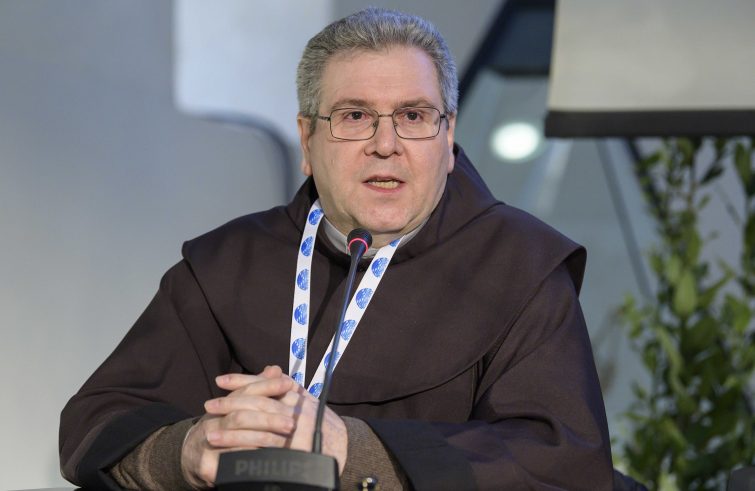
(Bari) The Document on Human Fraternity for World Peace and Living Together signed by Pope Francis and the Grand Imam of Al-Azhar in Abu Dhabi is entering the school curricula of educational institutions in the Middle East and is also being introduced in the academic curriculum of theological studies for those who are in formation to become brothers or priests “so that they can then work in this area with this perspective”. The Custos of the Holy Land, Fr. Francesco Patton, said this at a press conference this morning on the side of the Meeting on the Mediterranean, organised by the Italian Bishops’ Conference (CEI) in the Italian city of Bari. According to the Custos, the Abu Dhabi Document is “a cornerstone for us to build on. It is a Declaration we all support that is in line with the journey that we had already started thanks to that prophetic meeting between Saint Francis and the Sultan 8 centuries ago. We have tried to introduce programmes of cooperation and dialogue between Catholic and Muslim students in schools, also supported by Christian and Muslim professors, to identify opportunities for dialogue and common areas in which we can cooperate to live out fraternity and peace”. The Custos also emphasised the complexity of the religious and political situation in the Holy Land countries. The region includes Israel and Palestine, but also Egypt, Jordan, Lebanon, Syria, Cyprus and Rhodes. “In these countries – Fr. Patton said -, we Christians are generally a minority, or we are a Catholic minority” among Christians of other denominations. “These countries are faced with different internal problems: be it endless peace processes, or a decade-long war as in Syria, or situations of division as in Cyprus, or severe economic crises as in Lebanon, Jordan and Palestine. In all of these realities, our presence has an influence on the Holy places made of stones, but also on the concrete lives of the people whom we call living stones”. For the Church rooted in this land, commitment to education is a “priority we should try to advance even further for it contributes to Christians and Muslims living together in cooperation and friendship”. In this regard, the Custos spoke of a project launched in Aleppo to help children in that tormented Syrian city to overcome the trauma of war. It is a project that could be initiated and developed thanks to the cooperation of Christians and Muslims and of the city’s Bishop and Mufti.
